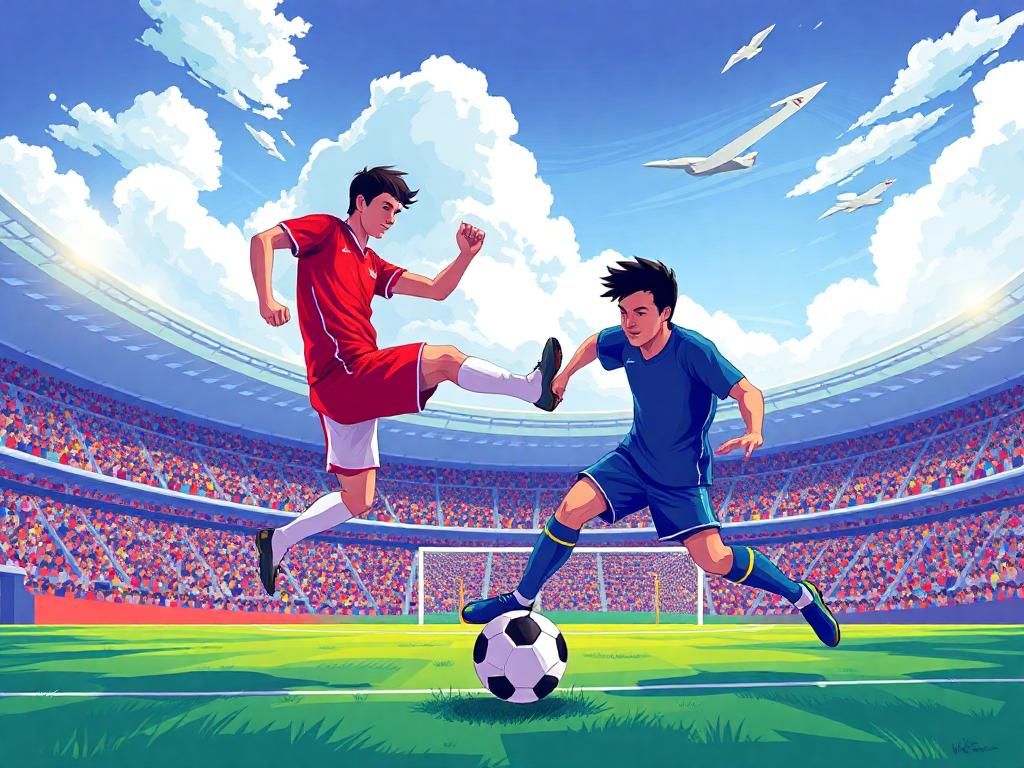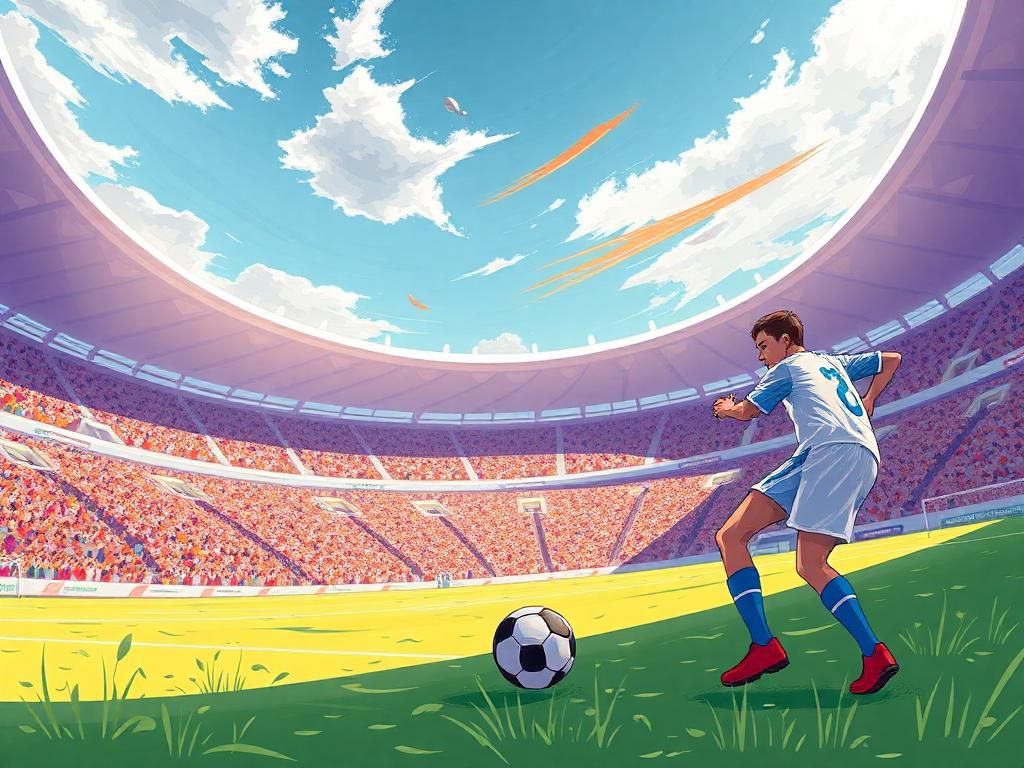Football Libre is a unique and dynamic approach to the beloved game of football. It represents a melding of passion, community, and a refreshing philosophy that places emphasis on creative expression and inclusivity. Rooted in traditional football yet heavily influenced by street football, Football Libre has emerged as a cultural phenomenon in various regions, inspiring communities and youth alike to engage in sport without the constraints that often accompany more commercialized forms of the game. This article seeks to explore the rich tapestry of Football Libre by diving into its history, philosophy, global reach, challenges, and future prospects.
History of Football Libre
Origins and Development
Football Libre traces its origins back to the essence of traditional football, where the primary focus is the joy of playing rather than just winning. The informal street football culture has significantly influenced its development. Players expressed themselves freely in neighborhood pick-up games, creating a vibrant and spontaneous environment. These roots emphasize camaraderie and creativity, allowing players from diverse backgrounds to come together and share their love for the game.
Key Milestones
Throughout the years, various grassroots organizations have played a pivotal role in the evolution of Football Libre. These initiatives have been successful in forming community ties and promoting the principles of the game through notable events and tournaments. The annual street football festivals, such as those organized in urban areas across Europe and South America, serve as important milestones, showcasing the talents of local players and fostering community spirit.
Philosophy and Principles of Football Libre
The Concept of Freedom in Football
At the heart of Football Libre lies a commitment to freedom of expression. Football Libre encourages players to embrace creativity on the field, breaking away from rigid structures imposed by more traditional formats. Players are empowered to utilize unconventional tactics and showcase their unique skills, which infuses each match with an unpredictable charm that reflects the desires and identities of the participants.
Inclusivity and Accessibility
One of the most cherished aspects of Football Libre is its commitment to inclusivity. This approach actively encourages participation from all demographics, breaking down barriers related to gender, age, and socio-economic status. It is common to see local neighborhoods coming together to form teams that reflect their diverse backgrounds, allowing everyone a chance to engage in the sport they love.
Community and Social Impact
Football Libre fosters strong community ties, as local players often build deep-rooted friendships through their shared experiences on the pitch. More than just a game, it serves as a catalyst for developing leadership qualities and teamwork among participants. Young players, through their involvement, learn valuable life skills such as cooperation, respect, and resilience — qualities that benefit them both on and off the field.
Structure and Organization of Football Libre
The Role of Grassroots Organizations
Grassroots organizations are the backbone of Football Libre. They work collaboratively with local communities to promote the core principles of the game, ensuring that it remains accessible to all. Successful organizations have emerged in various regions, such as the Streetfootball World network, which connects local projects that aim to harness the power of football for social change.
Types of Events and Tournaments
Football Libre is characterized by diverse formats of events and tournaments. Community street leagues, often held in public parks or vacant lots, have become a popular way to bring players together. Festivals promoting Football Libre, with their inclusive environment, showcase not just the sport but also the cultural aspects surrounding it. These events often include workshops, live performances, and activities that celebrate local culture.

Volunteer and Coaching Opportunities
Volunteers play a crucial role in the success of Football Libre initiatives. They often organize events, provide coaching, and support player development within the community. Coaching strategies align with the principles of Football Libre, focusing on fostering creativity, encouraging player autonomy, and promoting fun and enjoyment in every session.
Football Libre Worldwide
Countries Embracing Football Libre
Football Libre has found a home across many countries with vibrant communities actively engaging in its principles. From Brazil to Germany, regions have tailored Football Libre to fit their cultural contexts. In South America, street football embodies a cultural celebration, while European nations have created formal networks that support community-based play.
Case Studies
Success stories abound from various regions, illustrating the profound impact of Football Libre in both urban and rural settings. In Brazil, local initiatives have connected thousands of youths, enabling them to express themselves creatively through sport. In Europe, programs have proven effective at rehabilitating out-of-school youth by providing them with a positive outlet and community support.
Challenges Facing Football Libre
Commercialization of Football
One of the significant challenges confronting Football Libre lies in the commercialization of traditional football. The allure of profit can overshadow the game’s essence. Many advocates strive to resist the commercial nature imposed on the sport, worrying that too much influence from large franchises might dilute the authentic spirit of Football Libre.
Infrastructure and Resources
Lack of facilities and funding presents another hurdle. Many grassroots organizations struggle to secure venues and necessary resources to host events. Addressing these logistical barriers is crucial in promoting the growth and sustainability of Football Libre in communities.
Cultural Perceptions
Cultural misunderstandings can also pose challenges. Some individuals from traditional football communities may view Football Libre with skepticism or consider it inferior. Changing these perceptions through education and community engagement is vital for the acceptance and growth of Football Libre.
The Future of Football Libre
Trends and Innovations
As Football Libre evolves, several trends and innovations are becoming apparent. The use of technology, such as social media, has allowed organizations to organize events more efficiently and reach a broader audience. Platforms like Instagram and Facebook help to promote events, showcase players, and share success stories, enhancing the visibility of Football Libre initiatives worldwide.

Educational Programs and Youth Engagement
Educational programs targeting youths are critical to fostering long-term engagement in Football Libre. Training camps and workshops aimed at instilling the core philosophies of Football Libre empower young players to take ownership of their growth. By building a sustainable model for future growth, organizations ensure the longevity of Football Libre initiatives.
Global Collaborations and Partnerships
Looking ahead, international collaborations provide exciting opportunities for advancement in Football Libre. Partnerships with schools, local governments, and global organizations pave the way for resource sharing and increased outreach. Expanding the network of collaborations reinforces the principles of Football Libre across borders, creating a global community united by a shared love of football.
| Aspect | Description | Impact |
|---|---|---|
| Philosophy | Focus on freedom, creativity, and self-expression | Encourages unique play styles and enjoyment of the game |
| Inclusivity | Open to all demographics | Fosters community spirit and diverse participation |
| Grassroots Engagement | Community organizations leading initiatives | Strengthens local ties and empowers youth |
| Global Reach | Active communities across various countries | Creates a global network of players and enthusiasts |
| Challenges | Commercialization, resource limitations, cultural perceptions | Requires ongoing advocacy and community engagement |
Frequently Asked Questions About Football Libre
What is Football Libre?
Football Libre is a grassroots movement promoting football as a means of creative expression and community engagement. It prioritizes inclusivity and accessibility for all.
How can I get involved in Football Libre?
You can get involved by joining local community leagues, volunteering with grassroots organizations, or attending Football Libre events and festivals in your area.
Are there any age restrictions for participating?
No, Football Libre is open to participants of all ages. Its inclusivity principles allow everyone to enjoy and engage in the sport.
Can Football Libre help in addressing social issues?
Yes, Football Libre has a positive impact on communities by fostering social interactions and youth development, often addressing issues like delinquency and social exclusion.
What makes Football Libre different from traditional football?
Football Libre differentiates itself by emphasizing creativity, self-expression, and community ties over the competitive and commercial undertones present in traditional football.
Are there Football Libre events in my area?
To find events near you, check local community boards, social media, and websites dedicated to grassroots football initiatives.
How does Football Libre impact youth development?
Football Libre plays a significant role in youth development by teaching essential life skills such as teamwork, leadership, and resilience through engaging and supportive sporting environments.
What are some successful examples of Football Libre?
Successful examples include community leagues in Brazil, street football festivals in Europe, and programs that connect youth in urban settings, demonstrating the transformative power of the game.
How does Football Libre promote cultural exchange?
By bringing together diverse groups, Football Libre serves as a platform for cultural exchange, allowing players to share their experiences and backgrounds through the universal language of football.
Can Football Libre be played in schools?
Absolutely! Many schools incorporate Football Libre into their physical education programs, promoting team building and fun while allowing students to engage in a more relaxed form of the sport.